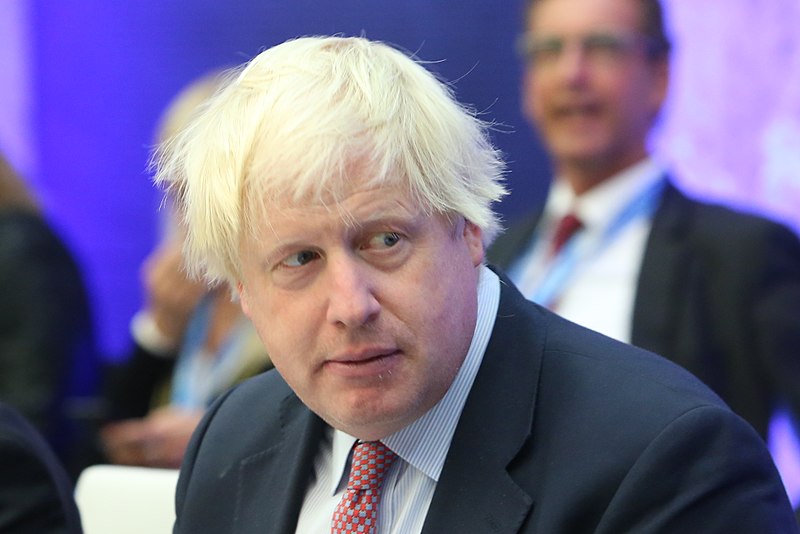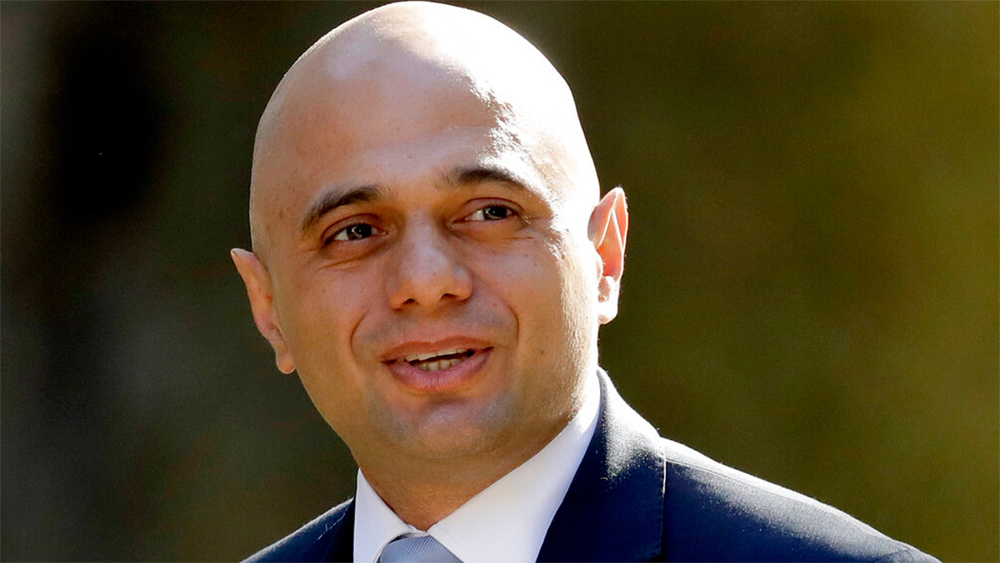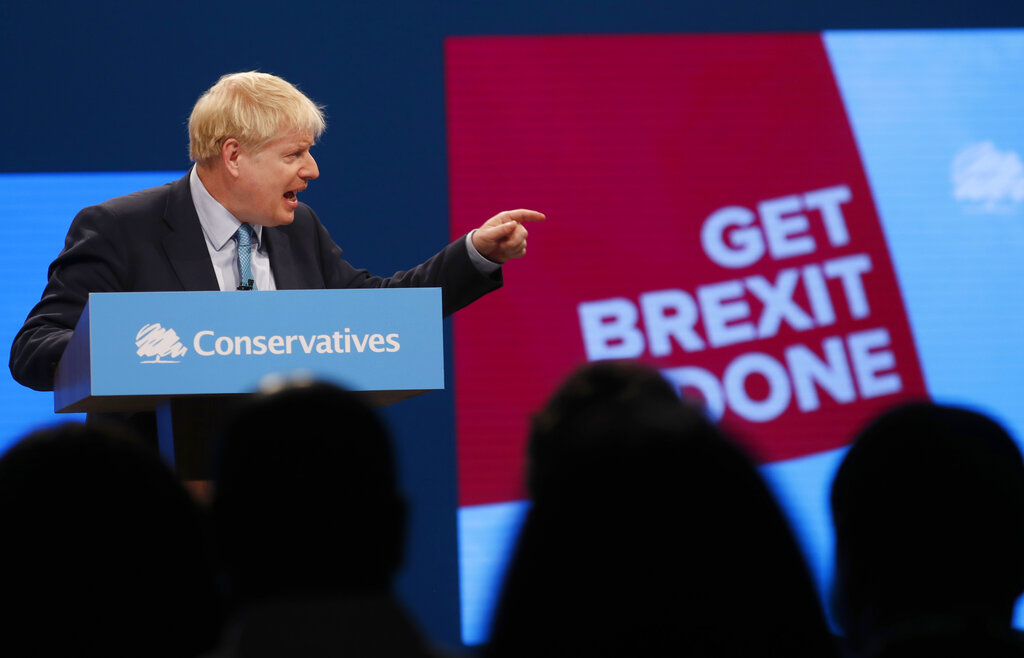Whatever else might be said of Boris Johnson — and many charges are being levelled as I write this — the wonder for an Indian is a prime minister who doesn’t shirk public debate. His appearance last Sunday on the Andrew Marr TV show wasn’t a command performance with sycophantic anchors bowing and scraping with ‘questions’ that invited hectoring monologues. Marr not only interrupted and contradicted, but also made plain his irritation when Johnson prevaricated. Of course, he got few substantive answers. Johnson eludes and elides, chanting ‘Get Brexit done’ as the nostrum for every ailment under the sun. But if that’s how he copes with being on the mat, at least he doesn’t kick the mat aside and hector from a pedestal.
My point is that here is a leader who does acknowledge the right of press and Parliament to question him on his policies. He accepts that he must explain himself and his actions, commits himself in public to certain positions, and can, therefore, be faulted or commended on the basis of the match between his words and actions. That is a luxurious dimension to democratic governance with which Indians are not familiar. From Jawaharlal Nehru to Narendra Modi, the world’s supposedly largest democracy has entrusted power to a succession of deified monarchs whose authority has been checked to some extent only by the highest judiciary. The TV anchor who squealed at me that India had to be a democracy since 900 million voters had queued up to exercise the franchise didn’t understand what Chicago’s senator, Adlai Stevenson, called the difference between American democracy and India’s ‘representative government’.
If openness is the first requirement of democracy, the second — that all men and women are equal — is epitomized by Sajid Javid, the son of Pakistani immigrant shopkeepers, who has triumphed over poverty and prejudice to become chancellor of the exchequer of what he calls “the most successful multi-racial democracy in the world”. Whatever prejudice might lurk in the Conservative rank and file — and there is plenty of evidence of simmering race tension — Johnson’s refusal to be squeamish about minority communities is borne out by the appointment of more BME (black and minority ethnic) cabinet ministers than all his Labour predecessors put together. Javid’s tribute to multiracialism at the Conservative Party conference was especially pertinent because of the setting. A.J.P. Taylor called Manchester the only city in the world which had built a monument to a concept. He meant the Free Trade Hall where as a precocious sixteen-year-old wrapped in dhoti and chador I was presented in a vanished long ago to the Lord Mayor of Manchester resplendent in his chain of office. Mancunians were discussing famine relief and canal building in India before these were considered topical subjects in India.
Javid provided a poignant footnote to the conference record when he addressed his mother sitting in the audience in ancestral Punjabi. “Sorry, that’s between us,” was his jokey aside to the packed hall. “I forgot you were there — just trying to make her feel comfortable.” She must have beamed. “Twenty years ago Mum thought it was a big deal when she watched the first Asians move into Coronation Street, here in Manchester,” said the chancellor. “Well, now she’s watched as the first Asians move into Downing Street.” (The chancellor’s official residence is Number 11.) “Once again, we’re living above the shop. And I’m so happy to make her proud.” Then, directly to her, “Mummy did you ever think we’d be here today?” Did she remember his dad’s first shop? It was only about a mile from the conference venue but might have been another world in time and space.
“Sadly, one of my childhood memories,” Javid wrote in a recent signed newspaper article, “was watching my mother scrub the word ‘Paki’ off the front door of my family’s shop. Growing up in the Seventies and Eighties, it happened time and time again. I remember being scared as a young boy, having to walk to school a different way to avoid National Front thugs, and feeling angry and confused at being told to go back to where I came from.” On the point of Asians in Downing Street, Priti Patel, daughter of Ugandan Gujaratis, becoming home secretary must seem as momentous to many British Asians as the chancellor spouting Punjabi from the Tory party conference stage. No wonder he was so moved by Gurinder Chadha’s film, Blinded by the Light, which this column discussed some weeks ago. The chancellor thought that the tale of another Javed, also a young, British-born Pakistani whose devotion to Bruce Springsteen’s music enabled him to conquer race discrimination, was “beautiful”.
Javid is said to hate identity politics and to have spent most of his political career avoiding it. But there’s no doubt that he uses it with finesse. However, his compliment to Blinded by the Light prompted the screenwriter, Sarfraz Manzoor, to remark sarcastically that he had never thought of the chancellor as a Springsteen fan but would happily draw up a playlist for him “so long as he realises Tougher Than the Rest [a 1987 Springsteen hit] is a song and not the foundations for an economic policy.” Scepticism is understandable among locals whose more exacting yardstick demands a less benign assessment of politicians. Manzoor’s crack seemed especially apposite as Javid scattered billions of pounds on schemes that were presented as evidence of Conservative caring but were really intended to hammer home the new Tory gimmick of being the ‘real party of labour’ on the eve of Britain’s most crucial general election since Clement Attlee won in 1945.
The acerbic columnist, Yasmin Alibhai-Brown, also an East African Asian, isn’t the only local to refuse to be dazzled by the display of candour and liberalism. Zamzam Ibrahim, president of the National Union of Students, withdrew from conference events, accusing the Conservatives and their think tank, Policy Exchange, of “deeply disturbing”,“dangerous” and “abhorrent” Islamophobia. Baroness Warsi, Britain’s first female Muslim cabinet minister and former Tory chairwoman, also says she is “truly ashamed” of the goings-on in the party. Sam Gyimah, a member of parliament of Ghanaian descent, was made to feel “an outcast”. Even Philip Hammond, chancellor under Theresa May, feels that the ruling party has become the prisoner of “an extremely right-wing faction”. Another leading Tory, Rory Stewart, one of the 21 MPs to be stripped of the party whip, lists a long series of events when the prime minister promised one thing and did exactly the opposite. They are not impressed by Johnson’s courage in facing press and parliamentarians because it is inconceivable to them that a democratically elected prime minister should speak only to his cronies or captive audiences instead of facing the scrutiny of his colleagues across the floor. Alibhai-Brown calls him “dissolute, unreliable, shady”. For Ayesha Hazarika, another prominent Asian-origin columnist, he is a “serial liar”.
In his short time in office, Johnson has faced no fewer than seven defeats on the floor of Parliament. The betting is that he hasn’t a cat in hell’s chance of finalizing a deal with the European Union to quit by the promised date of October 31. He might be forced to resign within the next few weeks or face defeat in an election. He might be arrested for defying the law forbidding a no-deal Brexit and demanding that the EU be asked to extend the time limit. The accusations of sexual and/or financial impropriety in connection with several women might yet bring him down. The obsessive ‘Get Brexit done’ myth of a single solution for all problems (including the proliferation of beggars in Kensington High Street) will be exploded sooner rather than later. But taking all these negatives into account, Johnson cannot be accused of being inaccessible, which is the first requirement of political democracy.












